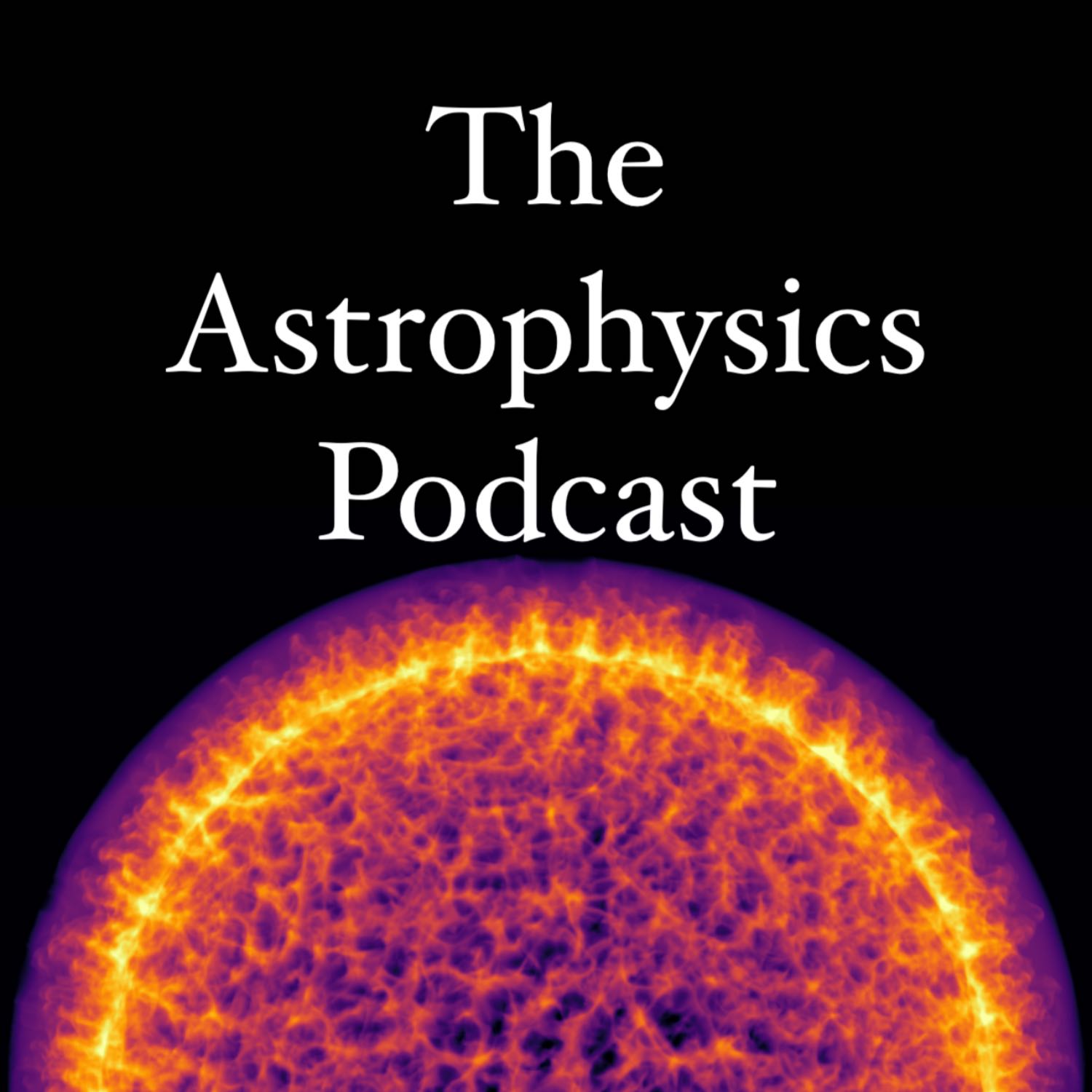Podcast Profile: The Astrophysics Podcast
 Site • RSS • Apple Podcasts
Site • RSS • Apple Podcasts27 episodes
2024 to 2026
Median: 63 minutes
Collection: Physics, Math, and Astronomy

 Site • RSS • Apple Podcasts
Site • RSS • Apple PodcastsDescription (podcaster-provided):
Once a month, Purdue University's Professor Paul Duffell discusses astronomy and astrophysics with experts from around the world. Duffell and guests discuss supernovae, galaxies, planets, black holes, and the nature of space and time.Themes and summary (AI-generated based on podcaster-provided show and episode descriptions):
➤ Astrophysics interviews • black holes, tidal disruption events • neutron stars, fast radio bursts, gravitational waves • supernovae and remnants • galaxy formation, clusters, dark matter • exoplanets, planet formation • computational simulations, big data, machine learning • telescopes, Rubin/JWST, time-domain astronomyThis podcast features monthly conversations hosted by Purdue astrophysicist Paul Duffell with researchers working across astronomy and astrophysics. Episodes center on how scientists observe, model, and interpret phenomena ranging from planets and stellar remnants to galaxies and the large-scale structure of the universe. A recurring focus is on extreme objects and transients—black holes, neutron stars, supernovae, and white dwarfs—and what can be learned from their emissions across the electromagnetic spectrum as well as from gravitational-wave signals.
Many discussions emphasize the practical and methodological side of modern astrophysics. Listeners hear how major observatories and instruments enable new science, including the challenges of building high-throughput cameras, repeating wide-field surveys, and extracting insight from rapidly growing datasets. The show frequently highlights computational and statistical approaches, such as large-scale simulations of galaxy dynamics and solar system formation, time-domain analysis of changing skies, and machine-learning tools for prioritizing events within massive surveys.
The content also explores key open questions in the field: the role of dark matter in shaping the Milky Way, how planets emerge from chemically rich birth environments, how binary stars evolve, and how the first galaxies formed as seen through facilities like JWST. Interspersed Q&A-style conversations address foundational topics (notably black holes) and reflect on how astrophysics research is conducted and communicated, including aspects of publishing and scientific infrastructure.